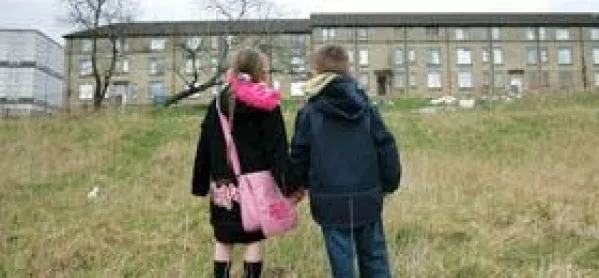The vote is for ending inequality in Scotland

This was a debate unlike any other in the independence referendum campaign. Not one question was asked about the currency and no one seemed concerned with how much money would be in their pockets after 18 September.
A year ago, some commentators mocked Scotland for having delusions of social progressiveness after research showed that being pound;500 better or worse off might have a critical bearing on voters’ views on independence.
Earlier this week, however, in the first of four referendum debates organised by the EIS teaching union, the Aberdeen audience reflected a very different mindset: the Yes and No campaigns will have to appeal to teachers’ altruism.
“Because we’re working with young people, we see the effects of poverty,” said Grant Bruce, secretary of the EIS Aberdeen branch. “We want to see a more balanced society - we know how that can improve conditions for learning and young people’s attainment.”
Before the debate between Aberdeen MSPs Mark McDonald (of the SNP, for Yes) and Lewis Macdonald (Labour, No), several teachers told TESS that their votes would go to the side that made the best case for tackling disadvantage. One primary teacher asked how Aberdeen could be the oil capital of Europe yet leave one in five of its children living in poverty. Another primary teacher, who worked in one of poorest parts of Aberdeen, said that increasingly parents could not afford to send their children on school trips or pay for uniforms. More worryingly, poverty - and the associated stress and poor nutrition - was affecting cognitive development at such an early, vulnerable age that children might never recover, she said. There was no sign of the febrile, antagonistic atmosphere of the televised independence debates, as the audience posed measured, forensic questions. One woman wanted to know whether the SNP wasn’t pulling a cynical ploy by focusing on childcare when they had had seven years in power to do something about it. A male primary teacher asked why, if the UK really was “better together” - the No campaign’s official slogan - 10,000 food parcels had to be delivered to Aberdeen families last Christmas. Similar concerns have dominated teachers’ online discussions. Contributors to the Teachers for Yes Facebook page made impassioned pleas for people to vote for independence as a way of counteracting Westminster’s austerity cuts and boosting schools’ performance. But there were scornful ripostes from the likes of Bridget Kane, who accused Yes supporters of victimhood and said they should look to the Nigerian girls kidnapped by militant Islamist group Boko Haram “if you want to find a victim and a cause”. Other education issues also got an airing at the debate. One classroom assistant, leaning towards Yes, said that education was just like the National Health Service: she appreciated that it was devolved to Scotland but feared that a No vote would squeeze funding and allow unpopular Westminster policies, such as the academies programme, to creep north. One Aberdeenshire primary teacher said that councils were letting pupils down by suppressing discussion about the referendum, after TESS revealed last week that some councils had banned any reference to the vote (“Schools grow wary of debate as vote looms”) . “The Scottish education system is the best there is,” Labour MSP Mr Macdonald concluded. He argued that there was no need to leave the UK as education north of the border had, for many years, made advances - such as free schooling - that England and other countries later followed. For the Yes side, the SNP’s Mr McDonald said that although independence was “not a magic wand”, taking greater control of the Scottish economy would prevent more children falling into poverty and allow the country to reform childcare so that female employment rose to similar levels as in Sweden. But there was little evidence of voters changing their minds. Rob Peaker, a retired chemistry teacher and No voter, admired Mr McDonald’s concern about child poverty but felt that independence was being presented as a catch-all cure with no detailed solutions. Amy Halliday, an English teacher at Aberdeen’s Bucksburn Academy, said she was voting Yes because she had grown up in the poverty of Glasgow’s East End and believed that urgent action was needed to tackle disparities in life expectancy. “I feel the only way to change that is to do something drastic,” she said. The EIS held another referendum debate in Edinburgh last night, with others scheduled for Glasgow on Tuesday and Dundee on 13 September.
Keep reading for just £1 per month
You've reached your limit of free articles this month. Subscribe for £1 per month for three months and get:
- Unlimited access to all Tes magazine content
- Exclusive subscriber-only stories
- Award-winning email newsletters



